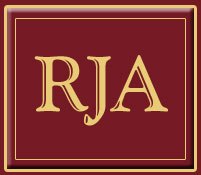“Trust dies but mistrust blossoms.” ~Sophocles
How important is trust? In my opinion, it is extremely important. Trust is the glue that holds together everything we do: our relationships, decisions we make, and our expectations of parents, spouses, partners, leaders, bosses, teachers, coaches, doctors, children, clergy, etc. Trust in a relationship, either personal or professional, is so important because it allows parties to feel safe and accepted. Trust also fosters greater self-confidence, self-reliance, personal engagement, risk-taking, and professional growth.
We expect our families, children and friends to treat each other respectfully; demonstrate compassion and empathy; possess the courage to do the right things; and be accepting of differences of opinions, beliefs, values and lifestyles. We expect organizations, institutions, and businesses to do what they say they will do. We expect executives, managers and supervisors to treat employees fairly and equitably. We expect our nation’s leaders to act in the best interest of all Americans – wealthy and poor, young and old, men and women, minority and non-minority, and the abled and disabled.
What I have witnessed is trust, like many other core values, has been eroding. Nearly 80% of Americans believe that we have too little trust in each other and nearly two-thirds said that the levels of mutual trust have been shrinking. Children have lost trust in their parents; employees have lost trust in their employers; policy makers have lost trust in their staff; citizens have lost trust in law enforcement; labor doesn’t trust management; voters don’t trust politicians; and Americans don’t even trust science. Covid-19 is a left wing political conspiracy to alter our DNA and capture minds and souls. The pandemic has destabilized our lives and lifestyles; disrupted how we do business and relate to one another; upended our educational system; created economic hardships; threatened individual freedoms; heightened anxieties; and further polarized Americans and U.S. politics. Whereas in the past we merely had skeptics and naysayers, we now have fully credentialed “anti-trust” protagonists. They believe, as Benito Mussolini is quoted as saying, “It’s good to trust others but, not to do so is much better.”
It is important to recognize that trust is not given; it is earned. Trust is not built overnight; it takes time, effort, character and perseverance. One has to appreciate that trust is not cast in cement; it is very fragile. David Horsager in Forbes Leadership Forum, Oct. 2012, notes that “Trust is like a forest. It takes a long time to grow and can burn down with just a touch of carelessness.” Once it is broken, it is heart wrenching and difficult to repair; but it is not irreparable. As a cautionary note, do what you can to avoid disagreements turning into conflict. If you find yourself in a conflict with someone, the likelihood is you will not trust the person very much anymore.
What does this mean for the future of organizations as we emerge from this challenging pandemic? How much will managers trust employees to work together to build collaborative inclusive working relationships, value diversity and promote a healthy work environment? Will employees and employee unions trust management to communicate and be supportive, compassionate, fair, and transparent? Will management be open to hybrid work environments, flex schedules and child care, or will they be focused on efficiency and rightsizing? Trust is the anchor that holds relationships steady through turbulent times. Trust is what binds leaders to their followers, and followers to the vision and mission of the organization. Leaders who lack courage, are disingenuous, do not follow through, find fault, regularly blame, have hidden agendas, and are self-centered will create an untenable work culture that will kill trust and “allow mistrust to blossom.”
Back in 2013, Glenn Llopis reported in Forbes that “Unfortunately, trust is in rare supply these days. People are having trouble trusting each other. Americans are suspicious of each other in their everyday encounters”. I recently asked a married couple, in their late 30’s with two children (4 and 1 years old), if they were taught by their parents to trust people. Both immediately said yes with one caveat: “Don’t trust strangers!” I then asked if they would teach their children to trust people, i.e. relatives, teachers, clergy, doctors, police, etc. and both quickly responded, “NO WAY!” I believe that absent trust the future of relationships at home, work and worldwide is in jeopardy
